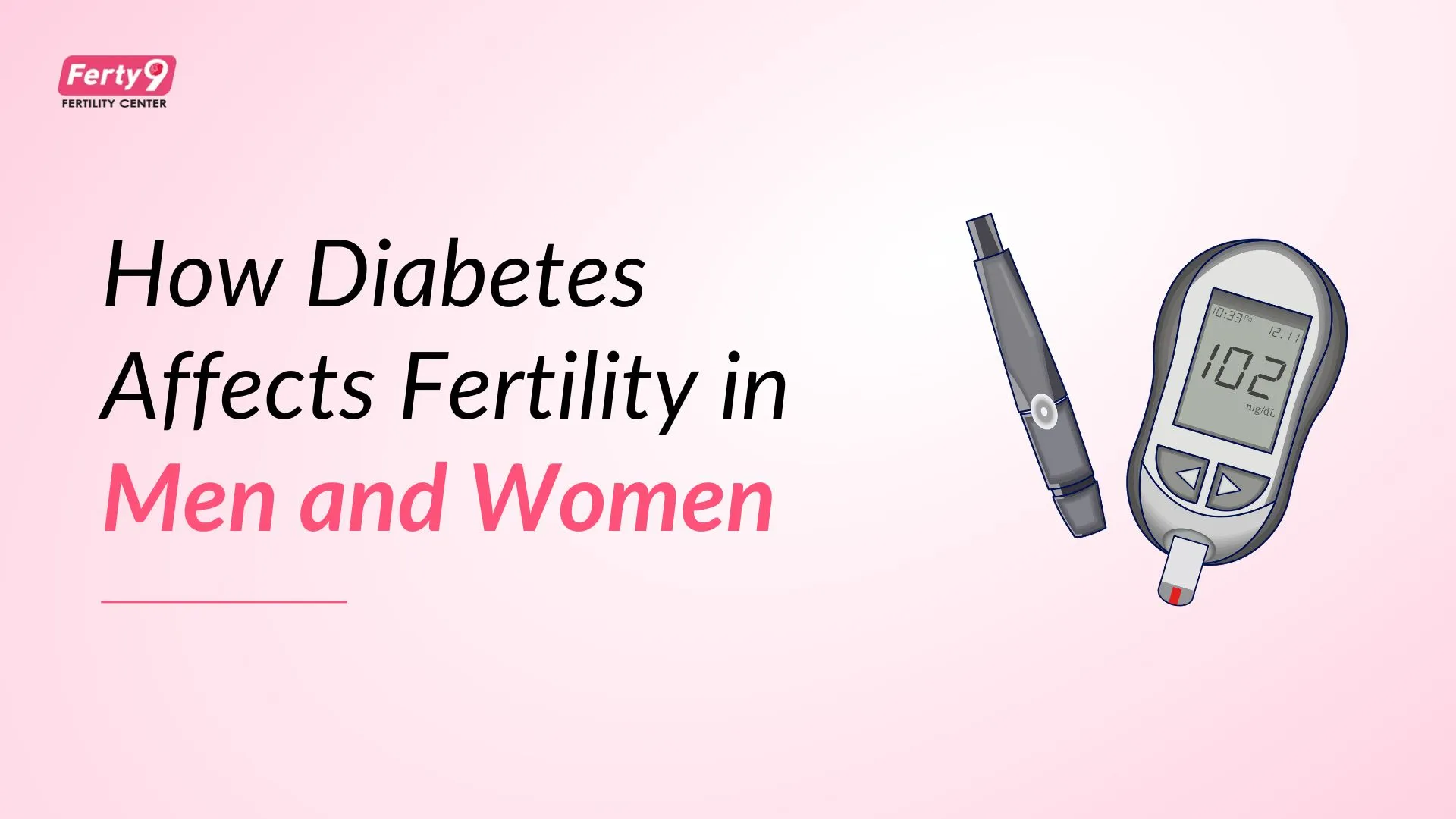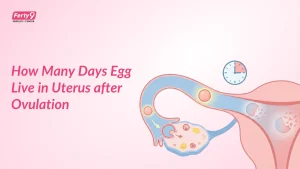Are you struggling to conceive with diabetes? Understanding the challenges and the relationship between diabetes and fertility is the first step to overcome the problem.
The relationship between diabetes and fertility
Diabetes is a medical condition that impacts blood sugar levels. It not only just affects your daily life but also impacts your fertility health. Diabetes can cause hormonal imbalances and physical complications in both men and women, obstructing the pregnancy path.
Let us discuss the impact of diabetes on fertility in both men and women, discussing male and female fertility, managing diabetes, and ART (assisted reproductive technologies). It provides insights for the relation of diabetes and its impact on fertility and seeking new insights, to manage their reproductive health.
Defining diabetes and its types
Diabetes is a chronic metabolic disorder associated by elevation of blood glucose levels. There are two main types of diabetes:
- Type 1 Diabetes:
- Autoimmune condition
- Body doesn’t produce insulin
- Usually diagnosed in childhood or adolescence
2. Type 2 Diabetes:
- Body becomes resistant to insulin
- Most common form of diabetes
- Often develops in adulthood
| Blood Sugar Target | Fasting | 2 Hours After Meals |
| Non-pregnant adults | 70-110 mg/dL | Upto 140 mg/dL |
| Pregnant women | 95 mg/dL or less | 120 mg/dL or less |
The link between diabetes and reproductive health
Diabetes can significantly impact reproductive health in both men and women. High blood glucose levels can:
- Affect hormone production and regulation
- Damage blood vessels and nerves of reproductive organs
- Increase the risk of infections
- Cause oxidative stress, affecting sperm and egg quality
Diabetes Affects Female Fertility
For women living with diabetes, either type 1 or type 2, fertility can be impacted with variety of challenges. Let us know, how diabetes can impact a woman’s reproductive journey:
Impact on Female Fertility:
“Diabetes’ Impact on Hormonal Balance”
- Irregular blood sugar levels disrupt hormonal balance.
- Interference with estrogen and progesterone production.
- Leads to irregular or absent menstrual cycles.
Difficulty in predicting ovulation and conceiving
- PCOS is more likely to occur in women with type 2 diabetes.
- Hormonal imbalances are made severe by insulin resistance, which prevents ovulation.
- Increased risk of early miscarriage due to uncontrolled blood sugar levels.
- Delay in conception due to longer conceiving time in diabetes patients.
Impact on Pregnancy:
- Pregnancy Complications for Women with Diabetes
- Increased risk of early miscarriage due to uncontrolled blood sugar levels.
- Delay in conception due to longer conceiving time in diabetes patients.
- Gestational Diabetes: Women with no prior diabetes can develop it during pregnancy.
- Increased Risk of developing organ damage, such as to the kidneys and liver, can result from high blood pressure.
- Women with pre-existing diabetes are at higher risk of developing this serious condition.
Diabetes and Male Fertility
Diabetes can also affect the male fertility. Let us discuss the factors that can impact male fertility:
Impact on Fertility:
Erectile Dysfunction (ED): Diabetes can damage blood vessels and nerves leading to the inability of male partner to maintain erection, making intercourse and natural conception difficult.
Retrograde Ejaculation: Nerve damage caused by diabetes can cause semen to flow backward into the bladder instead of being ejaculated.
Reduced Sperm Quality: Diabetes can negatively impact various aspects of sperm quality, that include:
- Men with diabetes may have a lower sperm concentration.
- Ability of sperm to move effectively can be impaired.
- Shape and structure of sperm may be abnormal.
- Damage to the genetic material of sperm can also be more prevalent in men with diabetes.
Hormonal Imbalances: Diabetes can sometimes affect the production of testosterone, a key hormone for male sexual function and sperm production.
Common fertility challenges faced by diabetics
Diabetics often encounter several fertility challenges:
- Certain hormonal imbalances
- Irregular menstrual cycles in women
- Erectile dysfunction in men
- Decreased sperm quality and motility
- Increased risk of miscarriage
- Complications during pregnancy
These challenges can make conception more difficult and increase the risk of pregnancy-related complications. However, with proper management of diabetes and appropriate fertility treatments, many diabetics can successfully conceive and have healthy pregnancies.
Lifestyle changes to boost fertility
Adopting a healthy lifestyle can greatly improve fertility outcomes for people with diabetes:
- Balanced diet: Focus on whole grains, lean proteins, and plenty of fruits and vegetables
- Regular exercise: Aim for 150 minutes of moderate-intensity activity per week
- Stress management: Practice relaxation techniques like meditation or yoga
- Maintain a healthy weight: Achieve and maintain a BMI between 18.5 and 24.9
- Quit smoking and limit alcohol consumption
Medications and treatments
Proper diabetes management often involves medications to control blood sugar levels and improve fertility:
- Metformin: It helps your body to be sensitive to insulin, which improves period cycles and also ovulation.
- Insulin therapy: Essential for type 1 diabetes and some cases of type 2 diabetes when the body in unable to produce enough insulin.
- Fertility medications: These medicines are suggested by the fertility expert based on the medical condition of the individual.
Regular check-ups and open communication with your healthcare team can help address any concerns and customize treatment plans as needed. With proper management of diabetes and a focus on overall health, many individuals can improve their fertility and increase their chances of a successful pregnancy.




























